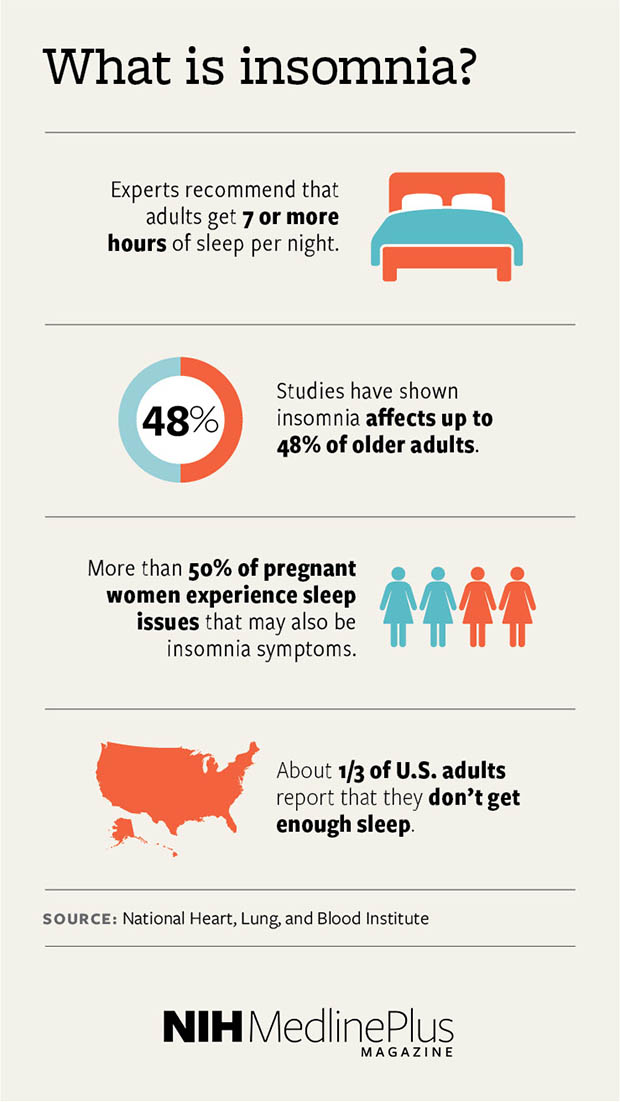Can't sleep? You're not alone. Roughly 30% of adults report not getting enough sleep at night. But how can you tell if it's something more serious?
Insomnia is a sleep disorder which is defined as repeated difficulty getting or staying asleep despite adequate opportunities and circumstances. It also results in daytime impairment. It's estimated that between 12-20% of adults in the U.S. have insomnia.
Many adults experience short-term insomnia due to stress, pain, an upsetting event, medications, or changes to sleep habits. This can lead to daytime sleepiness, fatigue, and difficulty concentrating. It can also make you more prone to infections, such as colds and viruses.
Healthy habits, like incorporating daily exercise and limiting alcohol use, can help some people sleep better.
Long-term (or chronic) insomnia, which lasts for more than three months, may require consultation with your health care professional.







